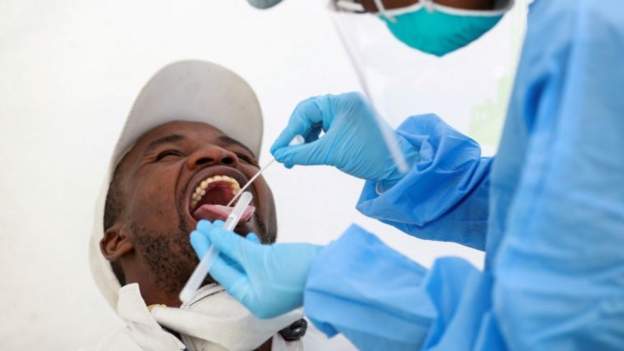The Centers for Disease Control and Prevention is shortening the recommended quarantine period from 14 days after a person has been exposed to the coronavirus, offering two alternatives, the agency said Wednesday.
The first alternative is to end quarantine after 10 days if no symptoms are reported, Dr Henry Walke, the CDC’s Covid-19 incident manager, said on a call with reporters. The second option is to end quarantine after seven days if an individual tests negative and also reports no symptoms.
The decision is based on new research and modeling data, Walke said.
Shortening the length of quarantine "may make it easier for people to take this critical action, by reducing the economic hardship associated with a longer period, especially if they cannot work during that time," Walke said.
It's unclear how many Americans exposed to the virus have complied with the 14-day guidance since the pandemic began.
According to Walke, the CDC has heard "anecdotally from our partners in public health that many people are discontinuing quarantine ahead of time because there's pressure to go back to work, to get people back into school, and it imposes both a mental and possibly also physical burden on individuals."
A shorter quarantine period may also make individuals more likely to cooperate with contact tracers, he said.
Still, the shorter periods do come with a small risk that a person may be infected when he or she leaves quarantine. For the 10-day quarantine, the risk of being infected is about 1 per cent, Dr John Brooks, the CDC's chief medical officer for the Covid-19 response, said.
For the seven-day quarantine with a negative test, the risk is about 5 per cent.
Walke noted that a 14-day quarantine is still the best way to reduce the risk of spreading Covid-19.
The initial 14-day quarantine guidance was based on the incubation period for the virus, that is, the length of time it can take for a person to become infected after exposure.
Even with the shortened quarantine periods, people should monitor for symptoms for a full 14 days after exposure, the CDC advises.
Either a PCR test or a rapid antigen test can be used to end quarantine after seven days. The test can be given anytime in the 48 hours before quarantine ends, Brooks said — meaning no earlier than day five of quarantine.
Even with a negative test on day five, however, a person still must complete the full seven days.
And if the test doesn't come back by the end of seven days, the person must quarantine until results come back, or until day 10.
The CDC also issued guidance for upcoming holiday travel, ultimately urging people to postpone travel if possible.
However, those who do choose to travel should get a coronavirus test one to three days before travel, then again three to five days after travel.
The testing after travel would be combined with a quarantine for seven days.
Latest Stories
-
Mimmy Yeboah: Blending heritage with global sophistication, confidence redefined through couture
12 mins -
Akufo-Addo commissions 97-km Tema-Mpakadan railway line
39 mins -
Majority requests recall of Parliament
56 mins -
Kanzlsperger and Professor Quartey support WAFA with medical Donation
57 mins -
Gideon Boako donates 10 industrial sewing machines to Yamfo Technical Institute
1 hour -
‘Golden Boy’ Abdul Karim Razak honored at WAFU-B general assembly
1 hour -
Buipewura Jinapor secures Vice Presidential position in National House of Chiefs with record votes
2 hours -
2024 election: I want results to come out like ‘milk and honey’ – Toobu
2 hours -
Ghana’s Henry Bukari hands over chairmanship of ECOWAS Brown Card Council of Bureaux
2 hours -
Residents of Dome-Kwabenya on edge ahead of December elections
2 hours -
Moffy drops new single ‘Wo’, blending culture and modernity
2 hours -
Don’t bring soldiers to polling stations – Martin Kpebu
3 hours -
Ogyeahohuo Yaw Gyebi II retained as President of National House of Chiefs
3 hours -
Embrace ICT to fit in digital world – Ho NYA boss to youth
4 hours -
We don’t want armed soldiers at polling stations – Tanko-Computer
4 hours

